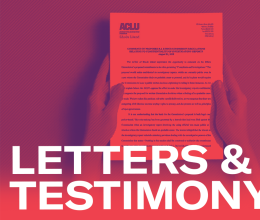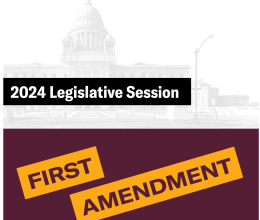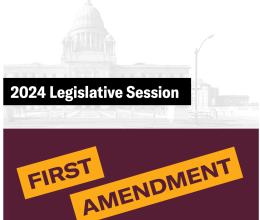The ACLU of Rhode Island has today filed suit in federal court, challenging the constitutionality of various aspects of Rhode Island’s campaign finance law and the Board of Elections’ interpretations of the law that impermissibly restrict the rights of individuals and entities to campaign for and against ballot questions. The lawsuit, filed by ACLU volunteer attorney Howard Merten, argues that the various laws and policies at issue violate the First Amendment and serve to chill the free speech rights of the ACLU, its contributors and like-minded advocates.
Rhode Island law prohibits corporations from contributing any money for ballot question advocacy. It also limits contributions by anyone, including individuals, who wish to help pass or defeat such ballot questions. The United States Supreme Court has held that both such limitations are unconstitutional.
The ACLU also is challenging a Board of Elections’ change in policy, scheduled to take effect on January 1, providing that if an organization like the ACLU solicits contributions from its members, or consults with any other person or entity about a referendum question, it must establish a political action committee, with the attendant reporting requirements and limitations on contributions to which PACs are subject. In comments appearing in today’s Providence Journal, an elections official even questioned whether a non-incorporated coalition can engage in free speech activities around a ballot question at all.
ACLU attorney Merten said today: “Individuals and organizations like the ACLU have the fundamental First Amendment right to speak out, and to join together to speak out, on important public policy issues that appear on the ballot. Freedom of speech is severely damaged when laws and policies seek to unduly restrict their ability to make contributions or expenditures in order to present their views to the public.”
RI ACLU executive director Steven Brown added: “The laws governing ballot referenda, as interpreted by the state, have an ironic impact. Multi-million dollar corporations are free to spend as much as they want to publicize their position, but small non-profit organizations are significantly restricted in their ability to raise funds and work together to counter those views. We believe that freedom of speech is best served when everybody is given the fullest opportunity to participate and speak out on controversial ballot questions. We are hopeful that the courts will agree.”




